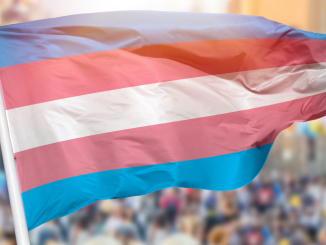
When Americans consider Canada, they probably think of maple syrup and funny accents. They should start thinking about alarming amounts of authoritarianism.
What has been jokingly referred to as “America’s hat” has been going through a rough patch recently when it comes to protecting its citizens’ fundamental liberties.
And next on the chopping block appears to be free speech.
During a recent trip to Alberta, Deputy Prime Minister Chrystia Freeland, who also serves as finance minister, was confronted by an angry man who yelled obscenities at her and called her a traitor. Canadian politicos quickly criticized the incident.
“If you disagree with a politician, by all means exercise your right to protest. But screaming threatening language & physical intimidation cross the line,” tweeted Alberta Premier Jason Kenney.
And on Sunday, Canadian Prime Minister Justin Trudeau said, “Threats, violence, intimidation of any kind are always unacceptable, and this kind of cowardly behavior threatens and undermines our democracy and our values of openness and respect.”
These handwringing comments come on the heels of efforts by the Canadian government to tamp down on free speech rights.
The government, led by Trudeau’s Liberal Party, has promised to institute a so-called online harms bill that would press companies to censor whatever the government defines as “harmful.”
“Now, more than ever, online services must be held responsible for addressing harmful content on their platforms and creating a safe online space that protects all Canadians,” the Canadian government’s website states.
But the Trudeau government’s track record when it comes to determining actual harmful content is egregious.
During the Freedom Convoy protests earlier this year, the government viciously cracked down on Canadians’ rights to peaceably assemble, all while slandering the organizers as being Nazis and racists.
“Freedom of expression, assembly and association are cornerstones of democracy, but Nazi symbolism, racist imagery, and desecration of war memorials are not,” Trudeau said.
After claiming that the protests were not really speech and were just hateful bigots complaining, Trudeau’s government proceeded to invoke the Emergencies Act. The invocation granted the government sweeping powers, which it immediately used to crush the free speech of the truckers.
The incident with Freeland in Alberta isn’t a useful example of how to express one’s feelings, but it’s being used as a justification for the Canadian government’s continued efforts to stymie free speech and free expression unless it’s for the benefit of the Liberal Party.
But Americans shouldn’t look the other way, since Trudeau’s brand of authoritarian speech-policing isn’t isolated to the Great White North.
Here at home, we see so-called hate speech being used against protected groups like Black Lives Matter or transgender people used as an excuse to ban or deplatform those critical of the radical left.
While the American government hasn’t yet been able to destroy that pesky First Amendment and pass laws banning hate speech, social media platforms, most notably Facebook and Twitter, do the job for them and regularly retaliate against their opposition.
And the key word there is opposition because hateful speech targeting those the powers that be dislike is allowed to flourish or even encouraged.
Since the leaked draft of the Supreme Court decision to overturn Roe v. Wade in May, angry protesters have marched their way around the justices’ neighborhoods, chanting vile and hateful things. Thus far, authorities have refused to act, even though what the protesters are doing is against the law.
Trudeau’s Canada and Attorney General Merrick Garland’s Justice Department here are dire warning signs of a frightening new breed of authoritarianism. The state will ruthlessly enforce orthodoxy toward leftist positions and accuse peaceful protests against them as hateful.
Canadian and American elites alike are trying to strip us of our free speech rights to insulate themselves from criticism. We can’t let them.
If the left is so afraid of what we have to say, we must keep talking.
* Article from: The Christian post
